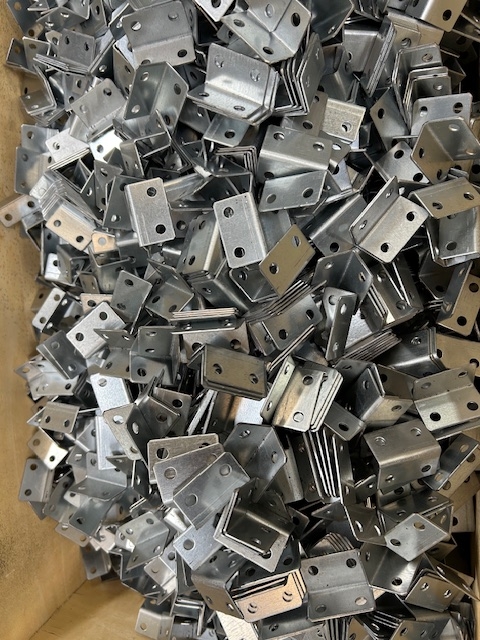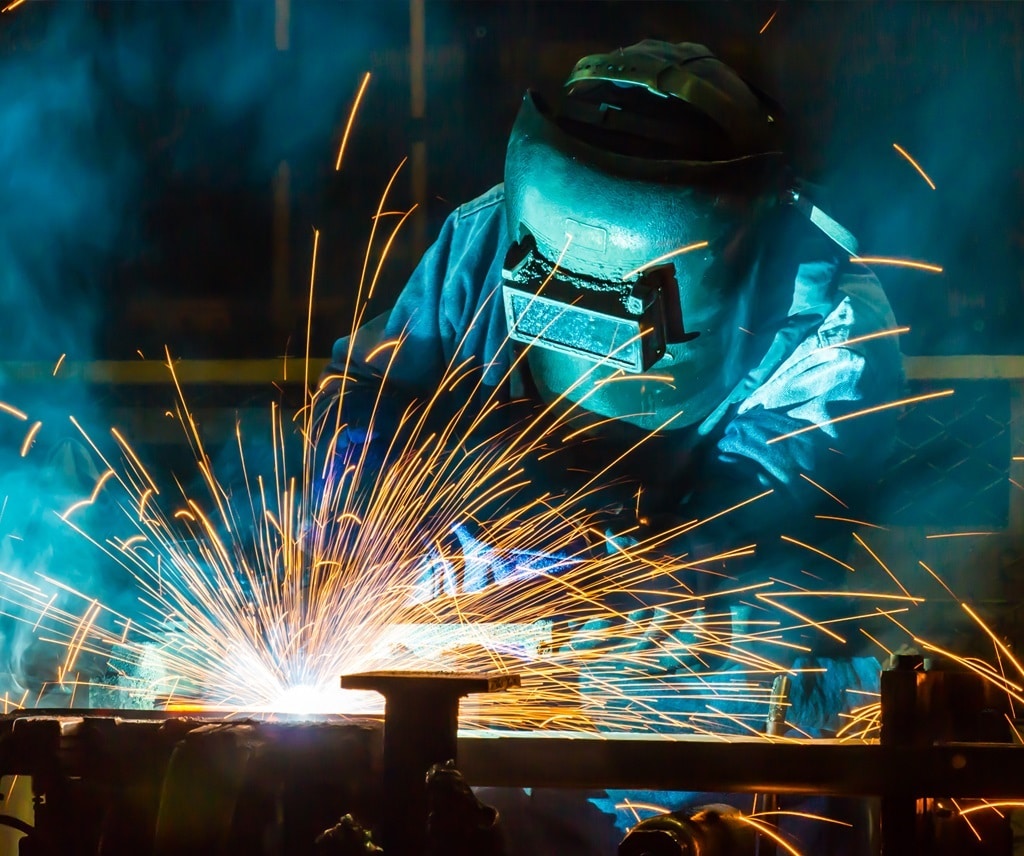How MPL Fabrications delivers speed, scale and consistency
The advantages of big batch production
At MPL Fabrications, we pride ourselves on being flexible enough to support one-off projects while also being fully equipped to handle large-scale batch production. Thanks to strategic investment in new machinery and a skilled, responsive team, we’ve recently completed a high-volume run of over 10,000 brackets in just a matter of days - a clear demonstration of the speed, precision and capacity we can offer.
Whether you're a buyer planning a long-term supply strategy or an engineer needing consistent quality at scale, there are clear advantages to big batch production. Here's how it benefits you - and why MPL is the ideal partner for high-volume fabrication.
- Economies of scale = Lower costs
Producing parts in large volumes allows us to optimise setup times, minimise material waste, and reduce per-unit labour costs. These efficiencies are passed directly onto our customers, delivering better value without compromising on quality.
Our investment in high-performance machinery like the LVD CNC Punch Machine and Bystronic Press Brake means we can process high quantities faster and more efficiently - making batch production a cost-effective option even for complex parts.
- Faster turnaround times
Once production is up and running, large batches flow through our system quickly and efficiently. In our recent bracket production run, our new automated setup allowed us to deliver over 10,000 components in just a few days - keeping our customer ahead of schedule and under budget.
We’re proud of our ability to scale production without delay, making us an ideal partner for businesses needing fast, reliable supply.
- Consistent quality, every time
With big batch production comes the need for consistency and accuracy. Our team uses CNC-controlled machinery and stringent quality checks to ensure every item in the batch meets exact specifications.
This level of control is especially valuable in sectors such as defence, healthcare, automotive and construction, where even minor variances can impact performance and safety.
- Stock and storage flexibility
At MPL, we understand that flexibility matters. That’s why we also offer secure, watertight on-site storage for customers who need to call off parts in stages. This means you can place a large order, take delivery as needed, and benefit from big batch cost savings without overloading your warehouse.
- Prepared for your next project
We’ve built our batch production capability not just for speed - but for repeatability and reliability. Whether you need 10,000 parts or 100,000, we’re set up to scale with your project, support your supply chain, and deliver the consistent quality your customers expect.
Why choose MPL Fabrications for large batch production?
- ✔️ Over 40 years of sheet metal fabrication expertise
- ✔️ Family-run, UK-based, and customer-focused
- ✔️ Advanced CNC punching, folding, and finishing equipment
- ✔️ Skilled team, ready to scale up on demand
- ✔️ Flexible delivery and storage options for your convenience
If you're planning a high-volume project and need a fabrication partner that can deliver speed, scale, and quality, get in touch with MPL Fabrications today.

If you have any questions about our specialist welding services or want to discuss a specific project then please contact us on 024 7661 0778, or via email at sales@mplfabrications.com. Our expert engineers are ready and waiting to explain exactly how we could deliver the sheet metal components you need.
Pros & Cons
Pros:
Cons:
Variety of Processes to choose from:
There are many different processes that can be used to create a metal prototype, including CNC Machining, CNC Punching, Press Braking, Laser Cutting and more. Each process has different uses and can be implemented to create very accurate prototypes. For example, a CNC Machine can run the same job a few times with minimal changes from the initial product, allowing for consistent and quality production.
Requires skilled workers:
In order to carry out a solid prototyping process you will need in-house skills and capabilities. This doesn’t just extend to the workforce and departments needed, but also the equipment and the maintenance of that equipment, which could include Laser Cutters, 3D Printing, CNC Machining and much more. If you do not have these capabilities in-house it may be worth contacting a fabricator to outsource the work to.
Cheaper Alternatives:
If you’re working with a tight budget there are always cheaper options when it comes to materials and processes involved in prototyping. Aluminium is more commonly used in CNC prototyping due to being economically viable, lighter and easier to fabricate.
3D Printing can be expensive:
3D printing is suitable for prototypes that are purely for display; not having any moving parts, mechanical purpose or practical use. Results can be achieved quite quickly, although the options for materials are more limited if you’re on a tight budget, particularly when it comes to 3D Printing with metals.
Accurate visual and material representation:
CNC machining can be used to create prototypes that are visually similar to the final part. Machining centres and fabricators can make end-use parts as well as prototypes, so you can create prototypes that have similar functionality to the final product in some basic core aspects.
Not an accurate functional product representation:
There is a risk that your prototype might not accurately represent your product in terms of functionality. Some of the processes involved can only produce prototypes at a limited size, or in certain materials, so there’s a possibility that there will be some design flaws in the process. This is a rare problem, however.
MPL Fabrication’s prototyping capabilities

A precision-engineered prototype is often the most important part of a larger project. MPL Fabrications understand how precise a prototype has to be. With years of experience in sheet metal fabrication, they can advise on what is needed to take a concept to reality.
In-house work means that every stage of manufacturing a prototype is seamlessly integrated with every other stage, so the end result is delivered on budget and on time. Once the prototype is complete, the client can work with MPL Fabrications to refine it, correct any problems, and perfect the design. The same team works on a prototype from start to finish to ensure precision and consistent quality.
If you need complete prototyping services of any kind, then MPL Fabrications can discuss your requirements. Their years of experience and ability to be versatile means they can deliver a prototype with ease, for large scale industrial projects or small engineered solutions.
